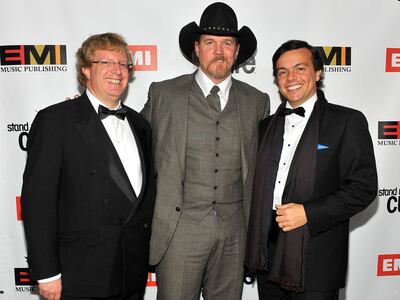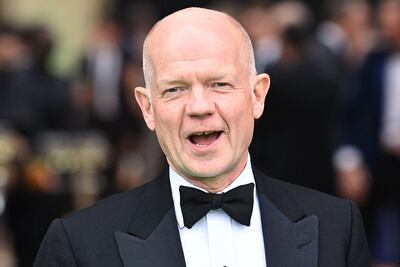Reading The Dealmaker – Lessons from a Life in Private Equity by Guy Hands, I am reminded of some of the other private equity kings I have known.
The one who insisted that he and his wife always went separately to school events so they had two luxury cars on show, one of them his Ferrari.
Another who gave the chance to drive his Ferrari round the school cricket pitch as a prize in a lucky draw.
The one who showed me the floor plan of his new house, producing a roll of paper and spreading it out at a drinks party. “Look at that, 15,000 square feet. Here’s the inside and outside swimming pool with a retractable roof.”
The one who could never explain what he did, save mumbling it was something to do with “buying small to medium-sized power stations in Europe”.
The one who jumped the queue for the Father Christmas grotto, brazenly going to the front before the other parents and their children and slipping in with his son.
And there was Guy the Gorilla. How I can picture him still, on January 15, 2008, marching along London’s Kensington High Street to the Odeon Cinema, from the nearby headquarters of EMI, the music company his Terra Firma fund had recently bought. He was accompanied by his PR minder and surrounded by TV cameras, photographers and reporters.
A walk that should have taken a few minutes took nearly half an hour, such was the throng. It was a spectacle that made news bulletins and front pages around the world.
The (Guy) Hands-on approach
He was addressing an EMI staff meeting and Guy the Gorilla, as he was known, owing to his physical bulk, gave it to them straight.
Their company was haemorrhaging money; their salaries were too high; their expenses were out of control. EMI had 1,400 artists on its books, of which a third had never released a record.
“EMI needs a new business model; we need to be much closer to the consumer – and this will require a smaller company with fewer artists, and we know how to do this,” he said.
When he had finished, the hapless EMI workers came out in ones, twos and threes, reeling from the thought that clearly many of them were to be fired. Mr Hands himself slipped away through a side door and scuttled back to his office.
It was one of those moments that define an era, the point in this case when the financial wizards who made fortunes from snapping up often famous-name businesses and frequently butchering them were caught in the full glare of publicity.
It still does, as private equity continues to attract opprobrium, for the application of sometimes brutal management methods and vast payouts for the usually secretive bosses, accompanied by an aversion to paying taxes involving the use of offshore schemes and shelters.
Yet, says Mr Hands now, he had hoped the Odeon performance “would bring everyone together”. Instead, he sowed further discord in a company reeling from the departures of major acts, including Radiohead, Lily Allen, Joss Stone, Janet Jackson, the Rolling Stones … the list was long and growing.
Now, he admits, the Odeon was “a disaster”. He blames the crowd. “I was bruised and battered, both physically and emotionally,” so once inside he let rip. “Today I do yoga. If something stressful arises, I pause and do a few pranayama breathing exercises. Back then, I didn’t.”
Reading his explanation forces a double take as, indeed, does the entire book. There is the Hands past and the Hands present, and there is an awful lot between them. The whole work is a cry for forgiveness and understanding.
Guy’s way or the highway
Yes, he was a monster and a bully, prone to withering verbal and written assaults on his critics (I know), determined always to have his way, Guy’s way.
But that is because he suffered from severe dyslexia, dyspraxia, obsessive compulsive disorder and aphantasia (giving him poor visual memory and preventing him from even forming a mental image of his wife, Julia).
Oh, and his actual hands are almost devoid of lines and he scarcely has fingerprints, which means he sets off detectors in airports.

The result of this, and more, is that he is an outsider. He is someone who went to Oxford (his best chum was William Hague), toyed with a career in politics, joined Goldman Sachs, then Nomura, where he first made his name and then formed his own Terra Firma in 2002 and made billions for his investors, while losing a fair bit as well.
In 2011, he lost £2.5bn but he has since recovered, probably making about £1bn since.
He was in the vanguard of the sector, its best-known, make that only, UK face, completing deal after deal, for cinemas, service stations, betting shops, garden centres, care homes … on and on they appeared.
He experienced things that others didn’t in the pursuit of the deal.
He was threatened with being shot in Russia (he refused to climb down and the Russians let him off but he later received a Christmas card from them with a photo of his kids).
There were the pubs he owned in London’s East End that burst into flames when he refused to sell them.

He was chased by a shadowy motorcyclist through the Dartford Tunnel.
At EMI, after he cut staff expenses, cocaine dealers decided to have a word.
And the Inland Revenue came knocking, so he decamped to Guernsey, where he still lives, isolating himself from his family and Britain.
It’s an extraordinary account and entertaining, as the confessions and reasonings tumble forth. In that respect, it’s quite unlike any other business book I’ve read. At times, you’re left feeling you’re in an extended therapy session.
Less abrasive memoir too little, too late?
The pity is that so little of his agonising and internalising was visible when he was in his pomp. Perhaps events would not have unfolded in the manner they did; possibly, he would have emerged as a better appreciated, lauded even, character.
Credit to him for attempting to set the record straight. It was not through lack of trying – this book was 17 years in the writing and no fewer than five ghostwriters attempted to wrest his thoughts and get them down on paper.
Unfortunately, the record is set, private equity continues to make enemies. It’s incredible how its practitioners, for all their sophistication in other areas, are so hopeless at selling themselves.
He can’t shake off the burden; it’s his to carry, albeit with a fortune safely in the bank.


